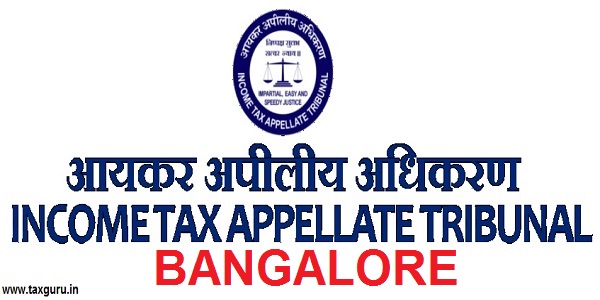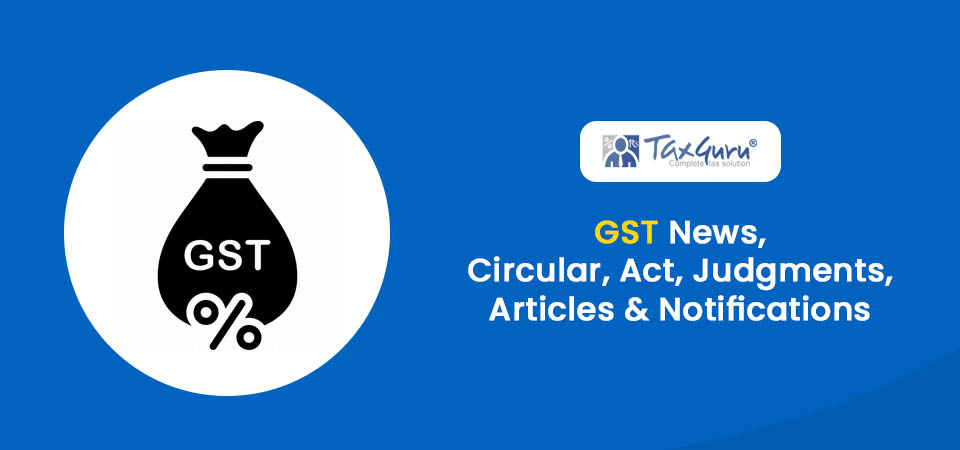Case Law Details
CESTAT, AHMEDABAD BENCH
Girish B. Mishra
Versus
Commissioner of Central Excise, Ahmedabad
ORDER NO. A/748/WZB/AHD. OF 2012
APPEAL NO. E/1313 OF 2010
MAY 15, 2012
ORDER
1. Shri Girish B. Mishra, (the appellant) was an employee looking after the marketing affairs of M/s. Swastik Sanitary Wares Limited. Proceedings were initiated against the Company on the ground that there was clandestine removal which culminated in confirmation of duty demand and imposition of personal penalty on the Managing Director as well as the appellant. Against the penalty imposed on the appellant, on an appeal filed by the appellant, the Tribunal vide order No. 21-23/2001-D dated 02.01.2001 reduced the penalty to Rs. 50,000/-. Appeal filed by the manufacturing Company before the Hon’ble Supreme Court against the confirmation of demand and penalty was dismissed. Thereafter, in January 1996, a criminal case was lodged by the Revenue against the appellant Company, the Managing Director and the appellant. The criminal case is still pending before the Chief Judicial Magistrate, Mehasana. After the order was passed by the Tribunal, the appellant also filed an application for rectification of mistake on 28.02.2002 and according to the submission in, the hearing the ROM application has not been heard till today and the appellant has not pursued it further.
2. After framing of Central Excise (compounding of offences) Rules, 2005, the appellant, feeling that the case of the appellant is falling under the category of cases which can be compounded, submitted an application before the Chief Commissioner of Central Excise, Ahmedabad on 19.11.2009 praying for compounding the offences. The Chief Commissioner vide impugned order rejected the application on the ground that there were contradictions in the submissions made by the appellant according to the report received from the reporting authority. He relied upon Paragraph-4 of circular No. 29/2009-Cus., which provides that application for compounding of offence cannot be allowed where there are demonstrable contradictions or inconsistencies or incompleteness. This order is being challenged in the present appeal.
3. Before the hearing of the appeal could be started, learned AR on behalf of the Revenue submitted that the appeal itself was not maintainable at all. It was submitted that the order passed by the Chief Commissioner was an administrative order and therefore is not appealable. Further, the Tribunal has no jurisdiction to hear the appeal in view of the provisions of Section 35B of Central Excise Act, 1944. Learned advocate for the appellants on the other hand relied upon the Tribunal decisions to submit that the Tribunal has the jurisdiction to hear the appeals against the orders passed by Chief Commissioner. Further, he also submits that as per the circular issued by the Board No. 29/2009-Cus dated 15.10.2009, the cases where the Chief; Commissioner is not inclined to accede to appellant’s request for compounding, it has to be rejected duly informing the grounds and, after following the principles of natural justice. He submits that the instructions issued by the Board in the above circular would clearly show that that the Chief Commissioner exercises quasi judicial authority when he passes the order and therefore, it cannot be called an administrative decision.
4. According to Section 35B of Central Excise Act, 1944, any person aggrieved by any of the orders passed/decisions may appeal to the Tribunal. The orders/decisions cited in Section are the decisions or orders passed by Commissioner of Central Excise, Commissioner (Appeals), CBEC. I find that in this case, no doubt, as submitted by the learned AR, the Chief Commissioner does not figure among the authorities whose orders can be appealed before the Tribunal. However, I find that as submitted by the learned counsel, in the case of Dharampal Satyapal Ltd. v. CCE 2008 (226) ELT 526 (Tri. – Kol.), this Tribunal had taken a view that appeals against the order of the Chief Commissioner lie to Tribunal. Paragraph 8 of the above decision is relevant and is reproduced below :-
“8. While remanding the matter to the Chief Commissioner, we have also considered the question as to whether after his decision, the right of appeal would be available to the appellant-companies if they still feel aggrieved by the fresh Order. We are of the view that since the Chief Commissioner will be exercising the power of the Commissioner while adjudicating the matter, there would be normally no dispute about the Appellate Tribunal hearing an appeal against such an Order. Moreover, we note that Section 35B(1)(c) of the Central Excise Act, 1944 provides an appeal to this Tribunal against an Order passed by the Central Board of Excise and Customs, which is a higher authority than the Chief Commissioner. As such, there can also be no doubt regarding the competence of this Tribunal to hear an appeal against an Order to be passed by the Chief Commissioner when the Tribunal is accorded a higher status and power to hear appeals against the Board’s Orders under the statute.”
5. Further, in the case of Videocon Industries Ltd. v. CCE (Import) 2009 (248) ELT 334 (Tri. – Mum.) also it was held that appeal against order of the Chief Commissioner lies before the Tribunal.
6. It was also submitted that unlike CHA License Regulation, wherein specifically it has been provided that customers being aggrieved by any decision or order passed can appeal to Tribunal, there is no provision in the Act and therefore, appeal cannot be filed. Further learned AR could not show any decision taking a stand contrary to the decisions cited by the learned counsel to support his submissions that this Tribunal has no jurisdiction to hear the appeals against the order. In view of the fact that the order passed is a quasi judicial order and cannot be considered as mere administrative decision and further, in view of the decisions of the Tribunal cited above taking a view that appeal lies to the Tribunal against the decision or order passed by the Chief Commissioner, the preliminary objection raised by the learned AR is rejected.
7. Coming to the merits of the case of the appellant, the learned Chief Commissioner has taken a view that the appellant did not make true submissions at the time of filing of application for compounding of offence.
8. The first finding of the Chief Commissioner as recorded is that there were contradictions in the submissions made by the appellant regarding his role in the offence. In his statement dated 26.4.1989, the appellant had accepted his role in the offence and had stated that he had the knowledge about the sale of unaccounted goods, clearance of kitchen sinks in the guise of laboratory sinks, cleared higher quality sinks as lower quality etc. In his defense reply to the show cause notice he had denied the charges leveled against him stating that the statement was recorded under duress and coercion. However, in the application for compounding of offence he has stated that he was acting solely under the directions of the Managing Director of the firm.
9. The other ground taken by the Chief Commissioner are that, the appellant did not mention details of miscellaneous application filed for rectification of mistake before the Tribunal against final order and he had also not mentioned the reasons for making the payment of reduced penalty under protest.
10. The Chief Commissioner has also recorded that during the personal hearing, the appellant has stated that he was acting as per the directions of Managing Director and he submitted reply to the show cause notice as per the direction given by the Managing Director of the firm. The learned counsel submitted that it cannot be said that there was any contradiction or suppression of fact while submitting the application. Copy of the show cause notice and copy of the statement and relevant records had been submitted. During the period when the statement was recorded, the appellant was an employee and while admitting that he had knowledge of malpractice, he had stated that he was working as per the directions of the Managing Director and it is part of the record that Managing Director was also held to be a party to the offence and penalty was imposed on him. Further while replying to the show cause notice, the reply was given as per the directions of the Managing Director as the appellant was still working with the Company and had to work under the directions of Managing Director. In the application for compounding of offences, the appellant had stated that he had acted solely on the directions of the Managing Director of the firm. He submits that from the above, it can be seen that there was no contradiction in the submissions made on the three occasions where the common thread that runs through is the fact that appellant was acting as per the directions of the MD just as an employee is expected to do. Therefore, it cannot be said that there was deliberate suppression of facts or mis-declaration or mis-representation in the application made by the appellant.
11. As regards the ROM application, it was submitted by the learned counsel that it was an omission. In fact the appellant had filed ROM but nothing had happened thereafter. He totally left it to its fate and had forgotten and did not even pursue it. He was not even aware that any hearing took place or anything happened to ROM application.
12. Reliance was placed on several decisions to submit that such contradictions or omissions should not come in the way of considering the application.
13. In the case of Raghbir Singh v. Municipal Board of Hardwar Union AIR 1956 All. 324, the Hon’ble High Court of Allahabad held that what is to be seen is whether the omission of fact is material or not; the omission to mention a particular fact does not necessarily disentitle the petitioner to get a relief under article 226 unless the fact which has been omitted to be mentioned is material to the relief claimed by the applicant.
14. The Hon’ble High Court of Rajasthan in the case of Sheo Karan v. State of Rajasthan AIR 1979 Raj. 58 held that if suppression of facts have no bearing on the main point in the petition, petition cannot be dismissed.
15. In the case of Manibhai Hathibhai Patel v. C.W.E. Arbuthnot AIR 1947 Bom. 413, the Hon’ble High Court of Bombay also took the view that suppression or non-submission of material facts due to no intention on the part of the petitioners to mislead or deceive the Court will not result in dismissal of application.
16. In the case of S.J.S. Business Enterprises (P.) Ltd. v. State of Bihar 2004 (7) SCC 166 the Hon’ble Supreme Court has held that general Rule of denial of relief is only when the suppressed fact is material one, that is, one which would have had an effect on the merits of the case.
17. He submits that the Chief Commissioner has simply relied upon the instructions in the Circular in which it has been observed that “compounding of offences cannot be allowed where there are demonstrable contradictions, inconsistencies or incompleteness in the cases”. The Board also has cited the decision of the Hon’ble Supreme Court in the order. It was mentioned that compounding of offences is under taken based on the principles of disclosure.
18. The question that is to be examined is whether it can be said that appellant has failed to disclose any material facts or tried to mislead the Chief Commissioner. I have already reproduced the contradictions observed by the Chief Commissioner. Before the compounding of offence takes place, the penalty imposed is liable to be paid and the basic principle while filing application for compounding of offence is that the offence is admitted. Therefore, what is material here is that there should not be any denial of the offence or any effort to show that the appellant was not guilty or offence was not grave. Just because the appellant took a different ground in reply to show cause notice while making the application, it cannot be said that he has failed to disclose the material facts. At the time of giving statement and at the time of replying to the show cause notice, it has to be remembered that the appellant was working with the Company and therefore, was working under the directions of same Company and an employee is expected to follow the directions of the employer. Therefore, the common thread as observed earlier running through the submissions is that the appellant acted as per the directions of the Managing Director. In my opinion, it cannot be said that there was deliberate suppression of facts or non-disclosure of material facts.
19. As regards ROM application, if the appellant were to pursue the ROM, it would be for his benefit. In fact, the fact of filing of ROM and non consideration of the same by the Tribunal has affected the appellant adversely and in no way benefitted him. Even though no details have been given, the objective of filing of ROM is to point out errors apparent on the face of the order and seek rectification. In such a situation, non-pursuing of the ROM application and non-mentioning the fact of filing of application, cannot be said to be non declaration of material fact or suppression and such non declaration or suppression in no way would benefit the appellant. In fact, it has to be noted that appellant has not written that what was the mistake he pointed out in the application, what was the relief he sought and how it would have impacted his penalty or prosecution. Therefore, it cannot be said that mere failure to mention the fact of filing ROM is very material for compounding of the offences.
20. As regards payment of penalty under protest, it has no value in the eyes of the statute since the order of the Tribunal has attained finality and the appellant has officially gone on record to submit that he did not pursue ROM at all nor did he file appeal.
21. The above discussion would lead to the conclusion that the rejection of the request for compounding of offence on these grounds cannot be sustained. Accordingly, the impugned order is set-aside and the matter is remanded to the Chief Commissioner with a direction to pass a fresh order after giving a reasonable opportunity to the appellant.

























